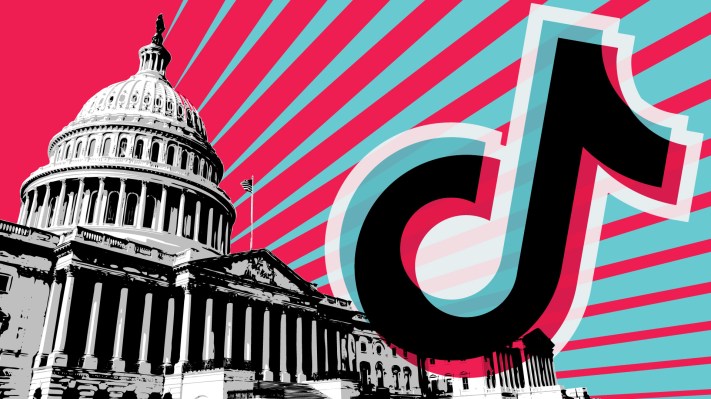
Welcome, people, to this week in review (WiR), TechCrunch's regular newsletter covering the noteworthy tech events of the week.
The fate of TikTok in the U.S. seems uncertain after President Joe Biden signed a bill that included a deadline for ByteDance, TikTok's parent company, to sell itself off from TikTok within nine months or face a ban on its distribution in the U.S. Ivan writes about how the impact of TikTok bans in other countries can signal what's to come on the U.S. side.
Meanwhile, the fallout from Change Healthcare breach continues. Change, a subsidiary of health insurance giant UnitedHealth, confirmed this week that a ransomware attack earlier this year led to a massive theft of private health information of Americans, potentially affecting a "significant portion" of Americans.
Tesla's profits plummeted by 55% as the EV company grapples with increased pressure from hybrid car manufacturers. The automaker's growth plan focuses on affordable, yet mysterious EVs planned for launch next year – as well as possibly robotics. But recalls on the Cybertruck for faulty acceleration pedals definitely won't help in the meantime.
There's a lot more happening. We'll summarize everything in this edition of WiR – but first, a reminder to subscribe to receive WiR newsletter in your inbox every Saturday.
News
Amazon's Grocery Plan: Amazon launched a new unlimited subscription for grocery deliveries in the U.S. The plan, priced at $9.99 per month for Amazon Prime users, offers free deliveries for grocery orders over $35 from Amazon Fresh, Whole Foods Market, and other local grocery merchants.
Grounded Drones in California: In more Amazon news, the tech giant confirmed it is halting its Prime Air drone delivery operations in Lockford, California. The central California town, with a population of 3,500, was the company's second site for drone deliveries in the U.S. after College Station, Texas; Amazon did not provide details on the shutdown.
Pisqur Plans Layoffs: Pisqur says it plans additional layoffs less than two months after a 15% workforce reduction, as the EV startup struggles to raise funds to stay afloat. Pisqur expects to seek protection from bankruptcy within the next 30 days if it fails to secure the money.
Stripe Expansion: Among other announcements at its Sessions conference in San Francisco, Stripe said it will separate payment offerings from its other financial services stack. Considering Stripe had previously required businesses to be payment customers to use any of its other products, this is a significant change.
Analysis
Rabbit Ears: Brian writes about R1, the first Gizmo from AI startup R1. Priced at $199, the touchscreen and the funky aesthetics from renowned design company Teenage Engineering make the R1 much more accessible than Humane's Ai Pin, he concludes.
Laboratory-Grown Diamonds: Pascal, a startup backed by Andreessen Horowitz, claims it can make luxury jewelry more accessible by using lab-grown diamonds that are chemically and physically identical to natural diamonds, but it comes at a twentyfold cost.
AI Poet: A project called the Poetry Camera – a physical, tangible camera – combines open-source technology with playful design and artistic vision. Instead of just taking pictures, the Poetry Camera generates thought-provoking poems created by artificial intelligence based on the visuals it encounters.
Deep Dive with Rippling: Connie interviews Parker Conrad, CEO of the HR management startup Rippling, about the company's new $200 million funding round, a new lease in San Francisco (the second largest in the city this year), and more.





